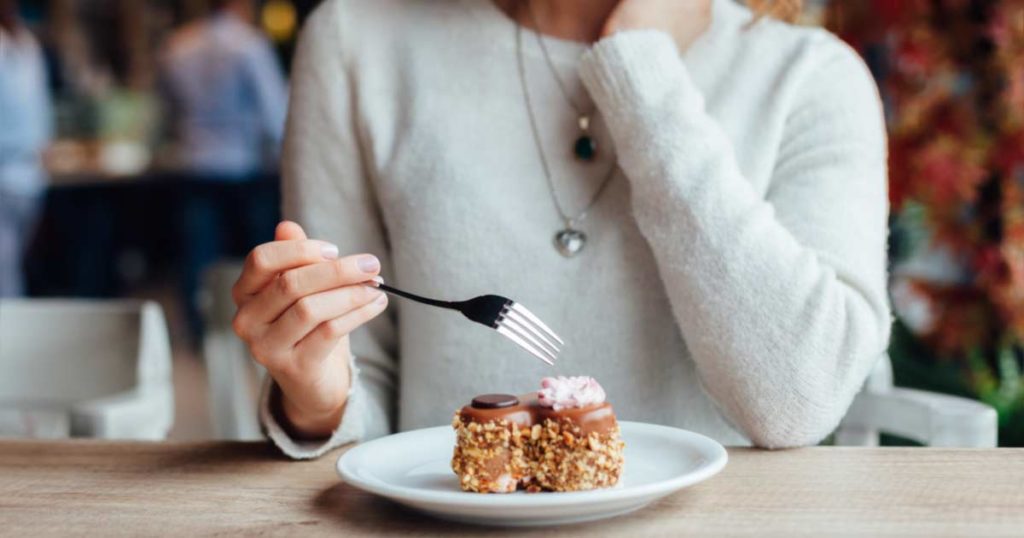There’s always a friend when you’re out drinking who instigates it: the midnight munchie run. It’s next to impossible not to nod in agreement as they exclaim, “Who wants to get Taco Bell?!” as you’re finishing off your last round of drinks at the bar. Three tacos, a bean and cheese burrito, and one order of cinnamon twists later you’re shaking your head wondering, How did it happen again? This consumption of an abnormally large amount of food in a short period of time is referred to as binge eating. But exactly what is binge eating?
What Is Binge Eating?
Binge eating is an episode during which an individual consumes a large quantity of food, generally to the point of discomfort. They frequently feel a loss of control over the amount they eat as well as distress and guilt once the episode is over. Binge eating disorder (BED) was officially categorized and added to the DSM-5 in 2013. When drinking, the feeling of being full isn’t as noticeable, thus resulting in your eating more than you might normally. However, if you struggle with BED, eating while drinking may be causing even more problems.
How Can I Stop Binge Eating While Drinking?
- Make a plan before you head out for the night that includes whether or not you’ll stop for “drunk meals.”
- When eating after you’ve been drinking, don’t eat mindlessly. Be aware of the amount you’re consuming and stop when you start to feel full.
- Pick healthier food options. Rather than eating Taco Bell or McDonald’s, try cooking for yourself at home — but make sure you stay safe!
Is My Binge Eating a Problem?
- Do you binge eat only while drinking?
Oftentimes, many people binge eat while drinking; it’s all too common. The receptors in your brain are dulled while drinking so it’s easier to eat past the point of being full when you’re under the influence of alcohol.
- Do you possibly struggle with binge eating disorder?
If you have symptoms or characteristics of BED, seek help from a doctor or a psychiatrist to address these important issues. If your binge eating is negatively impacting your life, these medical professionals will be able to properly diagnose you and develop a treatment plan to help you on a path toward a healthier relationship with food. Resources “Binge Eating Disorder” National Eating Disorders Association https://www.nationaleatingdisorders.org/binge-eating-disorder

